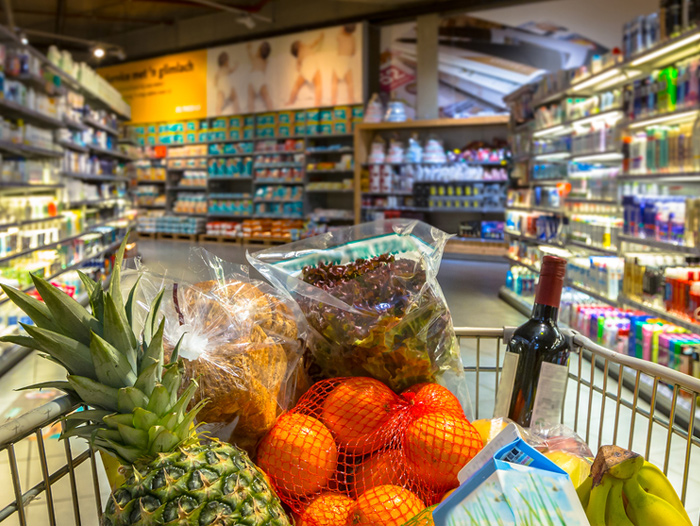Affordability Will Top Immunity as Leading Food Purchase Driver in 2023
February 6, 2023 | 5 min to read

In 2022, we saw food, health and wellness trends come in and out of style faster than ever, thanks to TikTok microtrends like balsamic vinegar soda, cloud bread and butter boards. But after years of keeping immune health and comfort top-of-mind during the COVID-19 pandemic, consumers are back to prioritizing affordability and convenience when shopping for food, according to the annual Pollock Communications and Today’s Dietitian “What’s Trending in Nutrition” survey. With 757 registered dietitian nutritionists (RDNs) responding, the “What’s Trending in Nutrition” survey reveals insights from nutrition experts on what they believe consumers will value in 2023, their top concerns when grocery shopping, and their top ten superfood predictions.
Value & Affordability Beat Immune Support and Comfort
The COVID-19 pandemic ushered in a focus on “food as medicine,” with consumers shopping for foods that support immunity and provide comfort. But as consumers navigate the cost-of-living crisis, RDNs predict that affordability will be a higher priority than immunity for the first time since the onset of the pandemic. With higher costs of groceries top of mind, consumers will be looking for functional, value-based foods that support their immunity and gut health. RDNs predict the top purchase drivers in 2023 will be foods and beverages that:
1. Are affordable and value-based (70.4%)
2. Are easily accessible and convenient (59.1%)
3. Support immunity (57.6%)
Top 10 Superfoods for 2023
Superfoods are here to stay, and for the first time in 11 years of the survey, the entire top ten superfoods list fits into a plant-based diet. Here are the top ten superfoods RDNs predict consumers will seek out in 2023:
1. Fermented Foods, such as yogurt, kimchi, kombucha tea and pickled vegetables
2. Seeds, such as chia and hemp
3. Blueberries
4. Avocados
5. Nuts, including pistachios, almonds and walnuts
6. Leafy Greens, such as spinach
7. Aquatic Greens, such as algae, seaweed and sea moss
8. Green Tea
9. Ancient Grains
10. Non-Dairy Milks
Plant-based eating continues to rise in popularity, with RDNs rating it as the third most popular diet trend after intermittent fasting and keto diets. However, despite the popularity of plant-based diets, only 1% of surveyed RDNs reported that they would recommend highly processed meat alternatives.
Snacking Isn’t Slowing Down
RDNs predict that, despite loosened COVID-19 restrictions, consumers are still snacking as much as they were over the last two years – with boredom (71.8%), comfort (71.8%) and working from home (67%) being the top 3 reasons why.
“Consumers are more aware than ever of the benefits food can provide for gut health and immune function. As consumers face higher costs at the grocery store, they’ll be looking for affordable food and snacks that still provide valuable health benefits,” says Louise Pollock, President of Pollock Communications. “Our survey findings reflect how consumer behaviors are shifting as COVID-19 restrictions loosen, remote work remains and inflation rises – from prioritizing affordable foods to continued interest in snacking.”
Misleading Marketing & Nutrition Misinformation
Food and wellness content online can make nutrition confusing for consumers because it is often misleading. While the majority of RDNs agree that consumers look to social media platforms for nutrition information, they also believe that these platforms are rife with nutrition misinformation, specifically citing Facebook, Instagram and TikTok as the top sources, and social media influencers being the category leading the charge for delivering misinformation.
“Social media influencers are talking about wellness and nutrition at rates never seen before, but people struggle to differentiate between credible information and myths. This only supports the need to amplify credible sources of nutrition information, like registered dietitian nutritionists,” says Mara Honicker, publisher of Today’s Dietitian. “With the survey in its 11th year, we are excited to continue to share insights from these experts in food and nutrition, at a time where the value of food is subject to more scrutiny.”
Pollock Communications is a New York City-based, independent, full-service food, health, and wellness public relations agency. Pollock’s public relations and credentialed nutrition experts create innovative partnerships that link brands to health and wellness platforms. Pollock has a long history of reaching key influencers and successfully communicating the taste, health and lifestyle benefits of brands and commodity foods to consumers, retailers and healthcare professionals. For more information, please visit http://www.lpollockpr.com/.
Today’s Dietitian is the leading independent source for news, information, research, and industry trends among the nation’s influential community of nutrition professionals. Each month, Today’s Dietitian provides registered dietitians, certified diabetes care and education specialists, foodservice managers, and culinary professionals with well-written content on essential topics that affect their clients, their profession, and their career development. Today’s Dietitian is also a leading producer of accredited continuing education opportunities for these practitioners.
